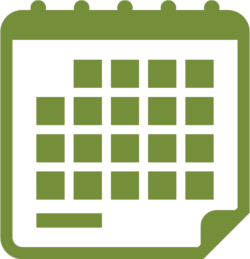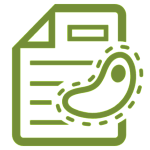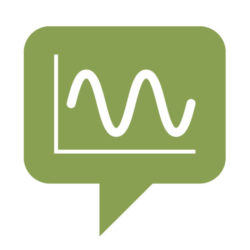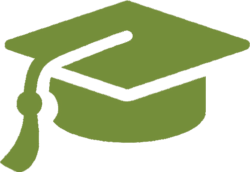
Here you will find quick tips and thoughts on a variety of topics related to science communication. If you have suggestions for additional blog posts, please don’t hesitate to reach out!


Towards an “#evenbetterposter”: improving the #betterposter template
September 27, 2023 What is #betterposter? Introduced in 2019 by a psychology graduate student1, #betterposter is a framework for improving scientific poster design and presentation. The goal is to eliminate large blocks of text—which too often plague academic posters—to improve audience understanding and to make posters more efficient to create and view. To accomplish this, #betterposter templates are… View Article
Intro to the faculty job search: tips and resources
July 28, 2023 The faculty job search, while continually evolving in terms of trends and hiring practices, is commonly experienced as a daunting, poorly illuminated, and variable process1. While there is no single path to success in finding a faculty job, here we aim to provide some general recommendations based on communication best practices and links to additional… View Article
Join our team: Comm Fellow application open!
January 17, 2023 Interested in becoming a BE Communication Fellow? Apply now to join the team!
Fantastic BATS and how to give them
September 2, 2022 This blog post will follow a roadmap format—jump in at any point no matter how much time you have until your own BATS: At face value, BATS might seem like one of the most intimidating aspects of the entire Biological Engineering PhD. You may feel like it is too early to share your research progress… View Article
Career Exploration
March 11, 2022 If you are starting to think about what you want to do with a degree in Biological Engineering, check out this post on career exploration. Learn about the various career paths our students have taken post PhD, think about what you are looking for, and get tips for how to start your own career exploration process.
It’s Comm Lab Application Season Again! Apply to join our team!
February 24, 2022
Graduate School Statement of Purpose Tips
September 16, 2021 Not sure what the personal statement for the BE graduate school statement of purpose should look like? Read our blog post to learn more!
How to work a virtual career fair
September 14, 2021 Career Fairs are hard. But what about virtual career fairs? Check out our tips for virtual career fair success here!
Introduction to Illustrator and Helpful Resources
September 9, 2021 Vector images are an important component of figure design. While the learning curve is steep, Illustrator is the best way to make images. In this series of blog posts, we introduce you to Illustrator and the things you might need to know how to do in Illustrator as a bioengineer!
A guide to Life Sciences VC as a Bioengineering Student
September 8, 2021 Many biological engineering students go into careers in venture capital or venture creation. In this series of blog posts, we interviewed alums in the field and answer common questions about jobs in VC. Read on to learn more!
Fellowships – Fall 2021
July 27, 2021 Check out a highlight of BE-related fellowship opportunities for undergraduate students, graduate students and postdoctoral fellows.
Writing Letters of Recommendation
July 27, 2021 Recommendation letters are critical for a successful job, school, or fellowship application. Writing a letter of recommendation can be hard. Check out our tips to write a strong letter for your mentee.Asking for Recommendation Letters
July 20, 2021 Applying for graduate school or fellowships can be daunting. To make the process more stressful, we often need several letters of recommendation for a complete application. Below are some tips on who to ask and how to ask for a letter of recommendation.
Join our Team! Apply to be a Comm Fellow!
February 19, 2021 We have a few openings to be part of the Comm Lab team and we want you! Submit an application today!
The do’s and don’ts of writing review articles
September 10, 2020 Reviews are an important part of the scientific process. And a good way to use your time if you can’t be at the bench. Read our do’s and don’ts for writing a review, here!
Paper got accepted? Do the work to increase visibility!
August 19, 2020 You did a lot of work to get your paper accepted. Now do a little bit more to make sure people know about your paper! Learn some ways that people share their work with the world!
Editing Checklist
August 11, 2020 Working on writing a long document. Use our editing checklist when you think you are done to make sure you don’t miss any details!
Fellowships – Fall 2020
July 29, 2020 It’s that time of year again! Fellowship deadlines are fast approaching. Writing a fellowship is an important exercise for any scientist and winning a fellowship is important for any career.
Remote Teaching Tips and Tricks
July 20, 2020 Remote teaching comes with its own challenges. The BE Comm Lab, in collaboration with the BE-TLL Teaching Fellow Program, compiled this list of remote teaching tips and tricks.
Remote Presentations
June 9, 2020 Do you have an upcoming class presentation, lab meeting, or thesis defense that you have to deliver virtually? Check out our tips on giving an engaging and informative scientific presentation over Zoom.
Spotlight on Emails and Interviewing
May 14, 2020 How can you improve your email and interviewing skills? BE Communication Fellows Sarah Schwartz and Josh Peters share their motivation for writing these articles and provide tips for success.
Tips for Remote Teamwork
April 10, 2020 It can be difficult to work in teams. Remote teamwork can be even harder. Here are some tips to help you work in a team remotely and have difficult conversations if needed.
How to Be Clear When Nothing Else Is
April 9, 2020 In the last month, coronavirus has rapidly rewritten the rules for how we engage with each other. Science communicators play a crucial role as they investigate, clarify and contextualize incoming data. Communicating complex concepts is a standard challenge that researchers, journalists, physicians, and other members of the scientific community struggle with daily—but these are not standard times.
How to work a virtual career fair
April 8, 2020 Career Fairs are hard. But what about virtual career fairs? Check out our tips for virtual career fair success here!
Things to do when you can’t be in the lab
March 31, 2020 Many BE undergrad and grad students were working in the lab prior to the worldwide Covid-19 rampdown. While you are at home, we wanted to remind you that there are many ways to use this time to learn and practice important research and life skills.
Remote Learning in BE
March 20, 2020 Welcome to the world of remote learning. We’ve all found ourselves in a new situation and are having to adjust quite rapidly. Below are some tips to help you prepare for and participate in remote learning.
Comm Lab Fellows visit Amplify the Signal at UIUC
July 31, 2019 MIT Comm Lab attended the Amplify the Signal conference at UIUC in May 2019. Communication Fellows Leigh Ann Kesler (NSE), Ravikishore Kommajosyula (MechE), and Amanda Chen (BE), brought back exciting ideas and important questions.
Spotlight on GitHub Resources
March 28, 2019 Seeing a need for resources to supplement the CommKit, BE communication fellows Alex Triassi, Tyler Toth, George Sun, Divya Ramamoorthy, Josh Peters, and Kyle Jarrod McLean began compiling templates and learning guides to make it easier to create beautiful and clear scientific documents.
Join our team — Become a BE Communication Lab Fellow!
March 12, 2018 The BE Communication Lab anticipates several openings this year to join the team. The Communication Lab is a program that is for engineers – by engineers. We offer writing, speaking, and visual design support for BE undergraduate students, graduate students, and post-docs.
Happy Birthday, BECL!
March 12, 2018 In Jan 2018, the BE Communication Lab celebrated it’s 5th birthday! It has been an exciting journey to get here and we can’t wait to see where the next 5 years take us! Thank you to all the clients, fellows, advocates, and discussion partners for helping us shape our journey.
Spring Fellowship Deadlines
March 1, 2018 Spring tends to be pretty quiet when it comes to applying to fellowships — but there are a few important fellowships to consider! Writing a fellowship is an important exercise for any scientist and winning a fellowship is important for any career.
Spotlight on Science Policy
March 1, 2018 How can you communicate your science to alter science policy and accurately inform the public? Driven by this question, BE Communication Fellow Aaron Dy, along with BE Fellow Manu Kumar, EECS Advisor Pete Lindahl, NSE Fellow Patrick White, and Dr. Dan Pomeroy of MIT’s International Policy Lab, created a new initiative to help students learn about Science Policy.
Wishnok Prize – Suggestions for Speakers
February 8, 2018 The Wishnok Prize for the Bioengineering and Toxicology Seminar (BATS) was established by the Department of Biological Engineering in 2015 in honor of Pete Wishnok, who led BATS for over three decades. The Wishnok Prize is awarded for the best talks in the Fall and Spring Semesters.
Resume/Networking Workshop and Speed Networking Event
October 26, 2017 Need a polished resume? Want to practice your networking skills? Thinking about next steps after you graduate? The BE Comm Lab is hosting a Resume/Networking Workshop and Speed Networking Event. Join us to learn strategies to make your resume stand out and engage your audience with the perfect pitch. It’s never too early to start perfecting these skills!
BE Comm Lab launches new public speaking resources
September 19, 2017 What makes an exceptional public speaker? Driven by this question, BE Communication Fellow Andee Wallace led the creation of a new initiative to help BE members elevate their public speaking. Here she explains what inspired her, and the resources the Comm Lab now offers to take your public speaking to the next level – regardless of where you’re starting from.
Fellowships — Fall 2018
September 13, 2017 It’s that time of year again! Fellowship deadlines are fast approaching. Writing a fellowship is an important exercise for any scientist and winning a fellowship is important for any career. While fellowship applications take time, they provide a great opportunity to put your ideas on paper and help you to write about your work in a clear and concise manner.
BE Communication Fellow Alumni Spotlight: Scott Olesen
September 6, 2017 Scott Olesen was one of the founding cohort of BE Communication Fellows, who joined and helped shape the Communication Lab when it was established in 2013. He was a BE PhD student in Eric Alm’s lab. Scott graduated with his PhD in 2016, and is now a postdoc at the Harvard School of Public Health.
BE now offering an undergraduate senior thesis
February 7, 2017 For the first time, Biological Engineering is now offering its undergraduates an opportunity to try their hand at a senior thesis – an in-depth write-up of their original research. For students who want to get a taste of graduate school or move their work closer to publication, this is an excellent opportunity to pursue scientific communication at length.
